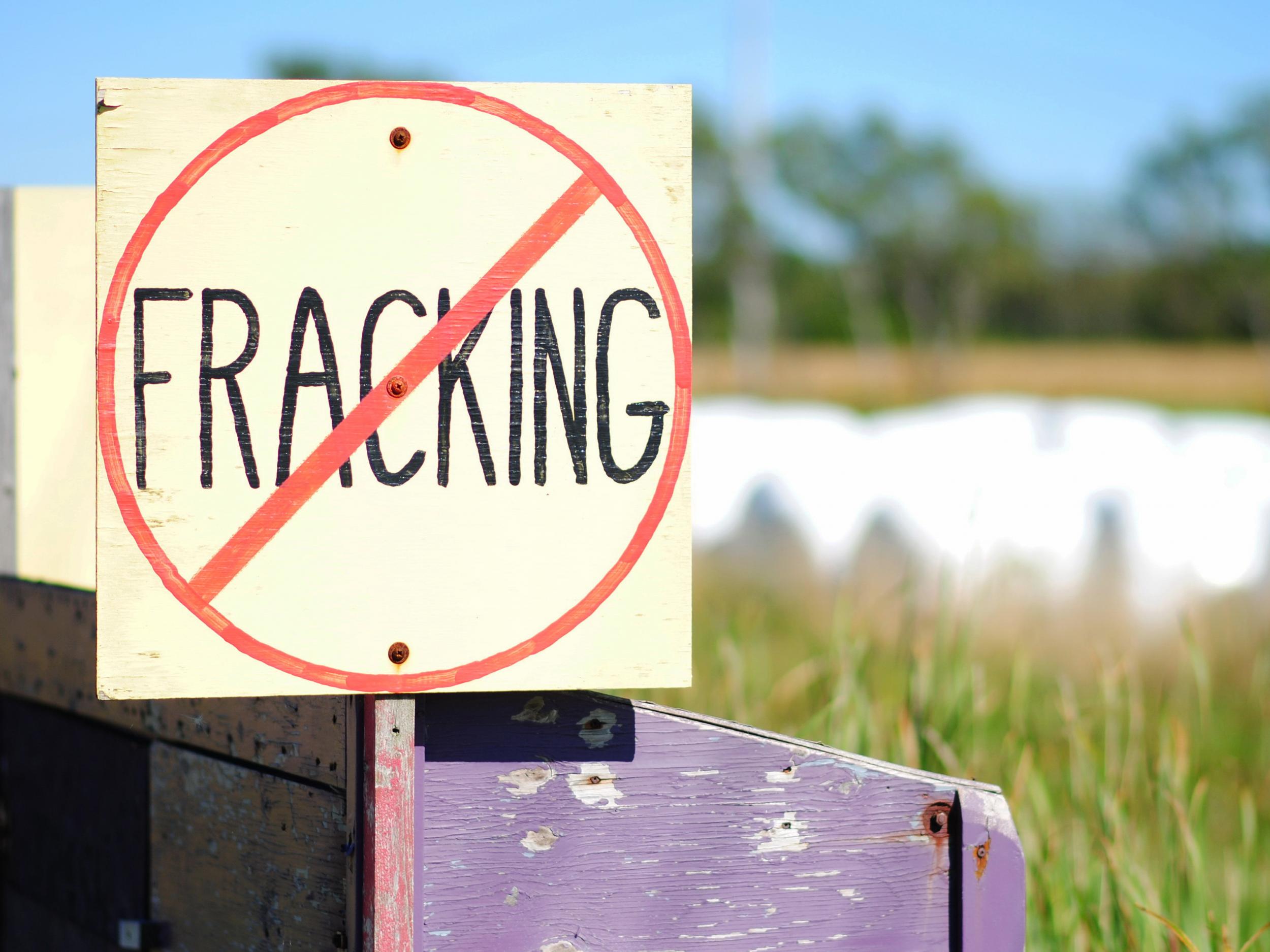Unreleased government report suggests industry and ministers exaggerated fracking boom
‘Though ministers like to talk up fracking in public, and the industry boasts of its own potential, it simply isn’t looking viable even by its own measures,’ says Green Party leader Caroline Lucas

Both politicians and industry leaders have been exaggerating the potential of future fracking operations in the UK, an unreleased 2016 government report has suggested.
It estimated that 155 fracking wells will be constructed by 2025, a fraction of the number predicted by a prominent industry report that has stated 4,000 horizontal wells could be drilled by 2032, with 400 wells per year at the peak phase of construction.
The projected boom for employment and investment in the UK these would bring have been cited by ministers to justify the controversial practice.
The Implementation Unit Report on Shale Gas predicted the much lower number.
It was released after a Freedom of Information request revealed by Unearthed, Greenpeace’s investigative platform.
Though it was made in 2016 for the Cabinet Office, the report was never released despite its discrepancies with other projections.
Another industry report supported by the Government predicted fracking could create over 64,000 jobs and bring £33bn of investment to the UK, but this was based on the estimate of 4,000 wells.
The new figures, therefore, raise questions over the economic benefits of fracking used by ministers and industry representatives to drum up support for it.
Hydraulic fracturing, or “fracking”, to extract shale gas involves injecting water mixtures into wells to release underground fuel reserves. The technique has been opposed by many environmental campaigners and local residents in designated fracking areas due to environmental concerns.
Previous research has called into question the sustainability of fracking, and currently the US is the only nation carrying it out on a large scale.
How fracking works and where it could happen
Show all 2Dan Lewis, senior adviser at the Institute of Directors, which helped produce the higher estimate of 4,000 wells, said it was “disappointing” that fracking has not delivered on its initial promise.
“The 2013 projection that, at peak, the UK’s drilling schedule could see 400 new laterals installed hasn’t come to pass, for a variety of reasons,” he told Unearthed.
“One major factor behind this is that further research into the UK’s geology has been held back by planning. Another is the fall in gas prices that have made exploration harder to justify.”
Advances in technology that mean fewer drilling sites are required to extract gas could also be responsible for the discrepancy in the figures, according to industry representatives.
These findings come at a time of particular uncertainty for UK fracking, as operations in North Yorkshire stall due to an investigation into the “financial resilience” of Third Energy, the company responsible.
Operations were supposed to begin near the North York Moors several months ago, but now Third Energy will remove its equipment from the contentious site while the investigation is ongoing.
There have been no fracking operations in the UK since 2011, and opponents have said the 2016 report provides further evidence of the industry’s uncertain future.
“This is further evidence that the fracking industry is doomed,” Caroline Lucas, leader of the Green Party, told Unearthed.
“Though ministers like to talk up fracking in public, and the industry boasts of its own potential, it simply isn’t looking viable even by its own measures.”
“These estimates from the heart of government are a far cry from the US-style fracking boom forecast by shale advocates,” said Greenpeace UK’s head of energy, Hannah Martin.
“Yet instead of publishing the figures, ministers decided to bury them in a Cabinet Office drawer. This is despite the fact that this analysis seriously undermines the promises of fracking jobs and investment repeated by government and industry for years.”
A spokesperson for the Department for Business, Energy and Industrial Strategy said: “The UK Government is committed to ensuring we have secure energy supplies that are reliable, affordable and clean.
“As part of this, shale gas has the potential to be a homegrown energy source which can lead to jobs and economic growth, contribute to our diverse energy mix to further enhance our security of supply, and help us achieve our climate change objectives.”
Subscribe to Independent Premium to bookmark this article
Want to bookmark your favourite articles and stories to read or reference later? Start your Independent Premium subscription today.

Join our commenting forum
Join thought-provoking conversations, follow other Independent readers and see their replies